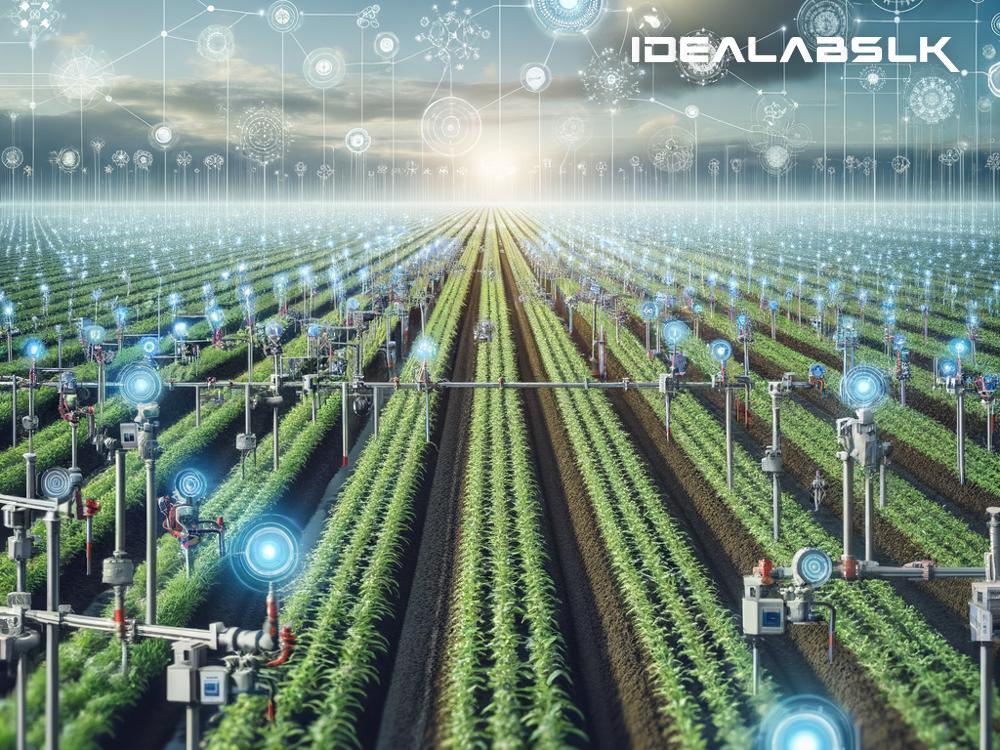How AI Optimizes Resource Usage in Smart Irrigation Systems
In today’s world, where the conservation of water is more crucial than ever, the importance of smart irrigation systems cannot be overstated. Thanks to advancements in Artificial Intelligence (AI), these systems are becoming increasingly sophisticated, helping farmers and gardeners alike optimize their water usage, ensuring every drop counts. But how does AI achieve this feat? Let’s dive into the fascinating world of smart irrigation systems and discover how AI is making them more efficient.
The Basics of Smart Irrigation Systems
At its core, a smart irrigation system aims to water plants in the most efficient way possible. Traditional irrigation methods often result in wasted water due to overwatering, evaporation, or runoff. Smart irrigation systems tackle this issue head-on by ensuring that plants receive exactly the amount of water they need, precisely when they need it. This is where AI comes into play.
Understanding AI’s Role
Artificial Intelligence, in the context of smart irrigation, refers to the system’s ability to gather data, learn from it, and make informed decisions. AI algorithms can sift through vast amounts of information, including weather forecasts, soil moisture levels, plant types, and even historical irrigation data. By analyzing these parameters, AI can predict water needs with impressive accuracy.
Optimizing Water Usage
One of the primary ways AI optimizes resource usage in smart irrigation systems is through predictive watering. Instead of following a fixed schedule, these systems can adjust their watering plans based on real-time data. For example, if rain is predicted for the next day, the system can decide to skip or reduce watering, saving significant amounts of water over time.
Furthermore, AI-powered systems can identify the precise needs of different plants within the same irrigation zone. This capability means that water usage can be fine-tuned to the individual requirements of each plant, avoiding the one-size-fits-all approach that often leads to overwatering some plants while under-watering others.
Monitoring and Adjusting in Real-Time
Another advantage of AI in smart irrigation is its ability to monitor and adjust irrigation practices in real time. Sensors placed in the soil can provide continuous feedback on moisture levels, indicating whether the plants are getting too much or too little water. This information is processed by the AI, which can then tweak the irrigation schedule as needed, ensuring optimal plant health and water usage.
Energy Efficiency and Cost Savings
It’s not just water that AI helps conserve; it also optimizes energy use and reduces costs. By running irrigation systems only when necessary, and at optimal times (such as in the early morning or late evening when evaporation rates are lower), these systems can significantly reduce energy consumption. Less water pumped means less energy used, leading to lower utility bills and a smaller carbon footprint.
Real-World Impact
The efficiency of AI in smart irrigation is more than just theory; it’s being proven in fields and gardens around the globe. Farmers who have adopted these systems report substantial reductions in water usage, sometimes by as much as 30-50%. This not only saves water but also improves crop yields, as plants are healthier when they receive just the right amount of water.
Looking to the Future
As AI technology continues to evolve, the potential for smart irrigation systems is boundless. Future advancements could bring even more precise control, deeper insights into plant health, and integration with other smart farming systems, leading to an era of agriculture that is not only more efficient but also more sustainable.
Conclusion
In the face of global water scarcity, the adoption of AI-optimized smart irrigation systems presents a beacon of hope. By making intelligent, data-driven decisions, these systems minimize waste, conserve resources, and ensure the health and productivity of plants. As we move forward, the role of AI in agriculture will undoubtedly expand, ushering in a new age of sustainable farming practices that benefit both our planet and its inhabitants. Whether you’re a farmer managing thousands of acres or a home gardener looking after your backyard, embracing smart irrigation is a step towards a more sustainable future for all.

